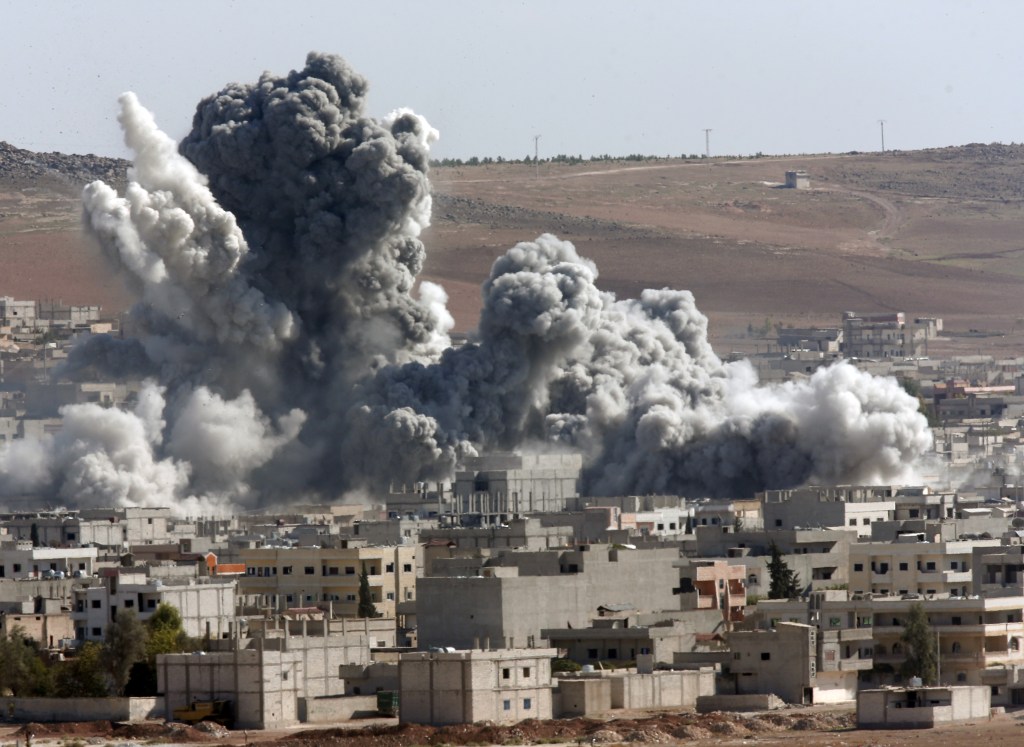BALAD, Iraq — Dizzy, vomiting and struggling to breathe, 11 Iraqi police officers were rushed to a government hospital 50 miles north of the capital last month. The diagnosis: poisoning by chlorine gas. The perpetrators, according to the officers: Islamic State extremists.
The chlorine attack appears to be the first confirmed use of chemical weapons by the Islamic State on the battlefield. An Iraqi Defense Ministry official corroborated it, and doctors said survivors’ symptoms were consistent with chlorine poisoning.
It is one of three crude chlorine attacks that Iraqi forces say have occurred since the extremists seized vast tracts of Iraqi territory this summer, although details on the other two incidents remain sketchy.
The presence of a large former Iraqi chemical weapons production plant in territory seized by the Islamic State has compounded those fears, though officials and chemical weapons experts say the 2,500 degraded rockets filled with nerve agents that remain there are unlikely to be fit for use. Weapons inspectors sealed them off with concrete in a bunker more than 20 years ago.
The Islamic State’s reported chlorine attacks appear to have been largely ineffectual. The attack on the police officers last month is the only one officially documented.
Chlorine is common in industry, but its use as a weapon violates the Chemical Weapons Convention.
It was 4:20 p.m. on Sept. 15 when the 11 police officers were rushed into the hospital emergency room in Balad. Some struggled to stand; tears streamed from their eyes.
“They were panicked; we were panicked,” said Kasim Hatim, the hospital’s director. “We initially thought it might be a more serious gas, a nerve gas or an organophosphate.”
The men had been brought in from the front lines of the nearby town of Duluiyah. The town had been under heavy assault for days, according to the accounts of three survivors. Islamic State fighters had taken territory to the north, cutting the only direct land access to the river town, and had blown up the last bridge into the town.
The police officers, all members of the Sunni Jabbour tribe, which has turned against the Islamic State, were guarding a line in the town’s north. After an exchange of fire, they were surprised to see Islamic State fighters retreating from their position about 150 yards away.
Suddenly there was a boom in the area the extremists had just vacated, said Lt. Khairalla al-Jabbouri, 31, one of the survivors. “It was a strange explosion. We saw a yellow smoke in the sky,” he said. The wind carried the fog toward their lines. The men say it hung close to the ground, consistent with the properties of chlorine gas, which is heavier than air.
“I felt suffocated,” Jabbouri recalled. “I was throwing up and couldn’t breathe.”
The men were taken to a small clinic in Duluiyah, before being transferred by boat to the larger hospital in Balad, where they were treated with oxygen and hydrocortisone, an anti-inflammatory medication, until the symptoms began to subside.
They were all discharged the following morning.
Send questions/comments to the editors.



Success. Please wait for the page to reload. If the page does not reload within 5 seconds, please refresh the page.
Enter your email and password to access comments.
Hi, to comment on stories you must . This profile is in addition to your subscription and website login.
Already have a commenting profile? .
Invalid username/password.
Please check your email to confirm and complete your registration.
Only subscribers are eligible to post comments. Please subscribe or login first for digital access. Here’s why.
Use the form below to reset your password. When you've submitted your account email, we will send an email with a reset code.